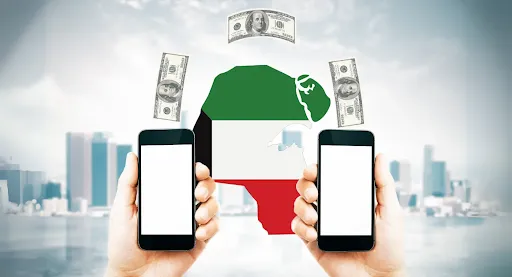How to Start a Successful Money Transfer Business in Saudi Arabia
Saudi Arabia is one of the largest remittance markets in the world, with billions of dollars flowing in and out of the country annually. With a large expatriate population from countries like India, Pakistan, the Philippines, Egypt, and Bangladesh, the demand for fast, secure, and cost-effective money transfer services is at an all-time high.
If you're looking to start a money transfer business in Saudi Arabia, this guide will walk you through everything you need to know —from regulatory requirements and licensing to setting up a money transfer app and growing your customer base.
1. Why Start a Money Transfer Business in Saudi Arabia?
Saudi Arabia has a booming remittance industry, making it a great place to establish a money transfer business.
Key Reasons to Invest in This Sector:
- High Remittance Volume – In 2023, Saudi Arabia ranked among the top remittance-sending countries, with over $40 billion in outward remittances.
- Large Expatriate Workforce – Millions of expats from India, Pakistan, Bangladesh, and Egypt work in Saudi Arabia, frequently sending money home.
- Growing Digital Adoption – More people are using money transfer apps and online banking for instant money transfers.
- Supportive Regulatory Framework – The Saudi Central Bank (SAMA) promotes fintech innovations and secure financial transactions.
With the right business model, compliance strategy, and marketing approach, you can build a successful and profitable remittance business in Saudi Arabia.
2. Understanding the Legal and Regulatory Requirements
To operate legally, you must comply with Saudi Arabian financial regulations and obtain the necessary licenses.
a) Business Registration & Licensing
- Register your company with Saudi Arabian General Investment Authority (SAGIA) if you’re a foreign investor.
- Obtain approval from the Ministry of Commerce and the Saudi Central Bank (SAMA).
b) Money Transfer License from SAMA
To send and receive international money transfers, you must obtain a money transfer operator (MTO) license from SAMA.
License Requirements:
- Minimum capital investment depending on the type of service you offer.
- Compliance with Anti-Money Laundering (AML) and Know Your Customer (KYC) regulations.
- Secure transaction processing system to prevent fraud.
c) Compliance with Financial Regulations
To prevent financial crimes, your business must:
- Verify customer identities (KYC) before processing transactions.
- Monitor transactions to prevent fraudulent activities.
- Submit compliance reports to the authorities.
Non-compliance can lead to penalties, fines, or business closure.
3. Choosing the Right Business Model
There are different ways to set up a money transfer business in Saudi Arabia. Choose a model that suits your budget and target market.
a) Bank-Based Money Transfer Services
- Works through Saudi banks to process transactions.
- Pros: Secure, regulated, and widely trusted.
- Cons: Higher transaction fees, slower processing times.
b) Digital-Only Money Transfer Business
- Uses a mobile app or online platform for transactions.
- Pros: Fast, cost-effective, and scalable.
- Cons: Requires strong cybersecurity and regulatory approval.
c) Hybrid Model (Digital + Physical Cash Pick-Up)
- Combines online transactions with cash pick-up locations.
- Pros: Caters to both digital and cash customers.
- Cons: Requires both digital security and physical branch operations.
A digital-first money transfer app is highly recommended for the Saudi Arabian market due to its growing fintech adoption.
4. Setting Up Your Payment Infrastructure
A secure and efficient payment system is essential for a successful money transfer business.
a) Partnering with Banks & Payment Processors
To facilitate transactions, work with:
- Local Saudi banks like Al Rajhi Bank, National Commercial Bank (NCB), and Riyad Bank.
- International remittance partners like Western Union, MoneyGram, and Visa Direct
b) Integrating a Secure Money Transfer Platform
To enable instant money transfers, you need a secure fintech platform that:
- Supports multiple payment methods (bank transfers, credit/debit cards, and mobile wallets).
- Uses encryption and AI fraud detection for security.
- Provides real-time tracking for customers.
c) Enabling Cross-Border Transfers
Your platform should allow customers to:
- Send money to India, Pakistan, the Philippines, and Egypt easily.
- Receive international remittances instantly with low fees.
Using an enterprise-grade, white-label remittance platform like RemitSo can help you launch quickly and scale fast.
5. Setting Competitive Pricing & Fees
Your pricing model should be transparent and affordable to attract customers.
- Low transaction fees compared to traditional banks.
- Competitive exchange rates for international transfers.
- Special promotions for first-time users.
The best way to transfer money internationally is by offering low-cost, fast, and secure transactions.
6. Marketing Strategies to Grow Your Money Transfer Business
a) Digital Marketing & SEO
- Optimize for keywords like "best way to send money to Saudi Arabia" and "money transfer app Saudi Arabia".
- Use Google Ads, Facebook, and Instagram to reach expats.
b) Referral & Loyalty Programs
- Offer cashback and discounts for customer referrals.
- Partner with small businesses that send money abroad.
c) Community & Ethnic Marketing
- Advertise on expat-focused platforms in Saudi Arabia, the UAE, and Qatar.
- Sponsor events for Indian, Pakistani, and Filipino workers.
A strong digital presence will help you scale your money transfer business fast.
7. Security & Fraud Prevention
Security is critical in the money transfer industry. To prevent fraud:
- Use KYC verification and OTP authentication.
- Monitor transactions in real-time to detect suspicious activity.
- Regularly update cybersecurity systems to protect customer data.
Ensuring SAMA compliance is crucial for long-term success.
Conclusion
Starting a money transfer business in Saudi Arabia can be highly profitable if you follow these steps:
- 1. Register your business and obtain the required licenses.
- 2. Choose a scalable business model (digital-first is best).
- 3. Build a secure fintech platform for instant transfers.
- 4. Offer competitive pricing & referral programs to attract customers.
- 5. Use digital marketing & SEO strategies to grow your brand.
At RemitSo, we provide ready-to-use remittance software and compliance consulting to help you start, scale, and succeed in the money transfer industry.
Frequently Asked Questions
1. What is the best way to send money from Saudi Arabia?
The best way to send money is via secure fintech platforms that offer instant transfers and low fees.
2. How do I get a money transfer license in Saudi Arabia?
You need to apply for a money transfer license from SAMA, meet the capital requirements, and comply with AML/KYC regulations.
3. What is the best money transfer app in Saudi Arabia?
Popular apps include STC Pay, Western Union, and Wise, but launching your own app with RemitSo can help you scale fast.
4. How long does it take to transfer money from Saudi Arabia?
Transfer times vary depending on the provider. Bank transfers may take 1–3 days, while digital money transfer apps offer instant or same-day transfers.
5. Is it legal to operate a money transfer business in Saudi Arabia?
Yes, but you must obtain the necessary regulatory approvals from SAMA, follow AML and KYC policies, and ensure compliance with Saudi financial laws.
6. What currencies can I transfer from Saudi Arabia?
Most money transfer services support Saudi Riyals (SAR) to USD, GBP, INR, PKR, PHP, and other international currencies.
7. How can I attract customers to my money transfer service?
To attract customers, offer low fees, fast transfers, referral bonuses, and a user-friendly app. Using SEO, social media marketing, and partnerships can also help grow your customer base.


